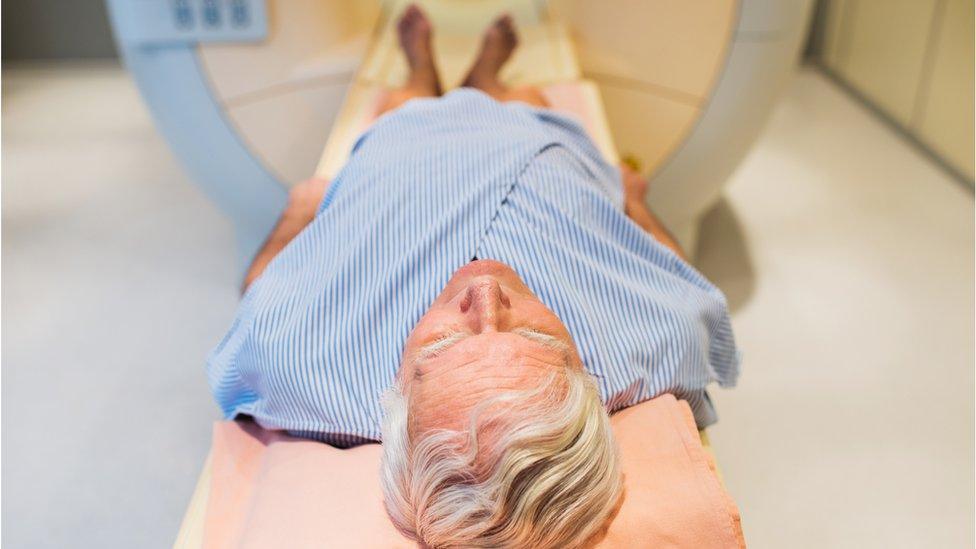Dogs from Milton Keynes charity trained to sniff out prostate cancer
- Published
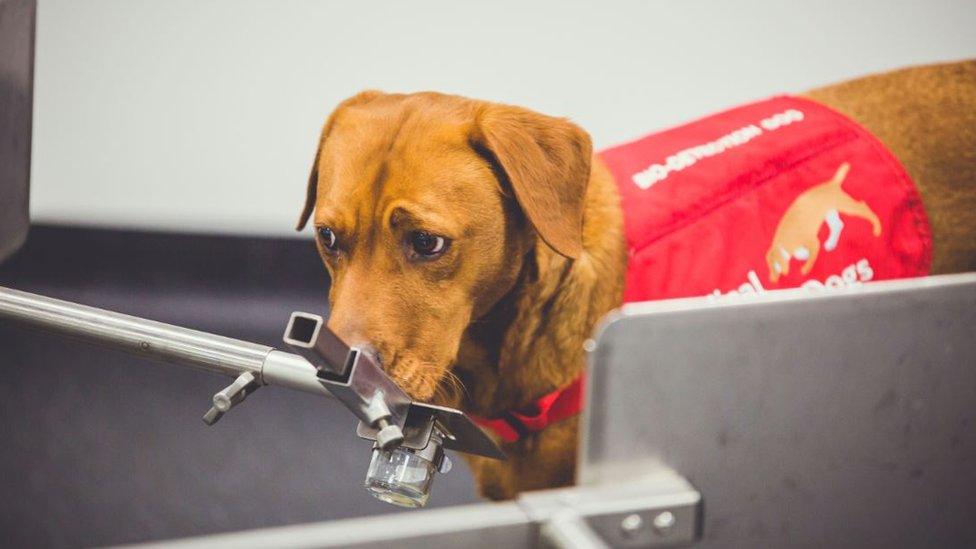
Florin the labrador was trained to sniff out the disease from urine samples
Dogs can detect the most aggressive forms of prostate cancer and could help develop a "robotic nose" to find the disease in the future, a study says.
Under an international research programme, a Labrador, Florin, and a vizsla, Midas, sniffed out the cancer's odour in urine samples from patients.
They were trained to find the most lethal tumours by Medical Detection Dogs, a Milton Keynes charity.
Clare Guest, the group's founder, said the dogs had "enormous potential".
"The dogs have been able to identify these very aggressive cancers. This could lead to lifesaving work in the future that would enable us to understand the difference between other diseases of the prostate and those that will go on to kill men," she said.
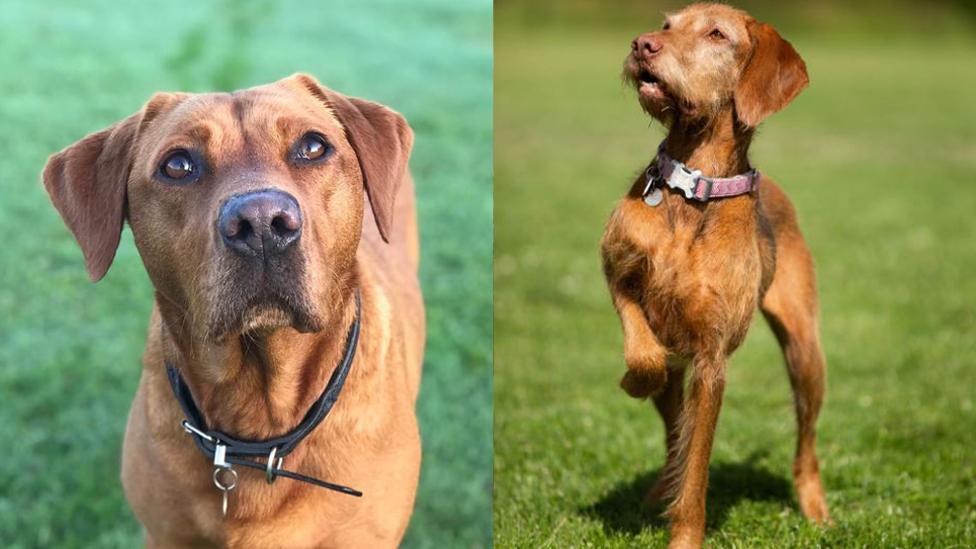
Florin the labrador (left) and Midas the vizsla are two of the charity's most experienced cancer dogs
She said the dogs could save "millions of lives around the world" if they were used to support the current detection method for prostate cancer.
A blood test which checks for PSA, a protein made only by the prostate gland, is not always accurate, external.
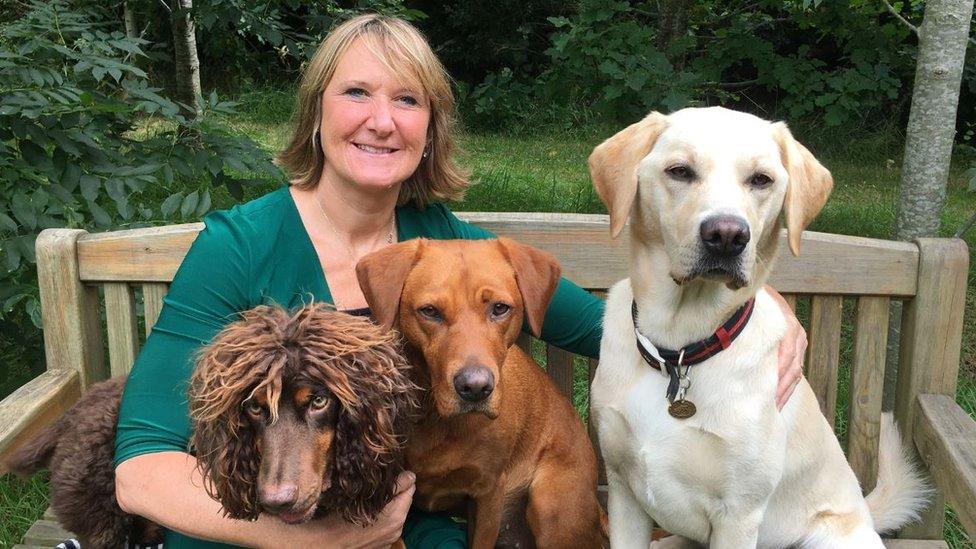
Florin (centre) lives with Clare Guest, who founded the charity and co-authored the study
Results from the study, which was backed by the Prostate Cancer Foundation and published in the journal Plos One, showed the dogs correctly identified positive samples 71% of the time when detecting the most lethal prostate cancers.
The dogs correctly ignored negative samples, including from people with other diseases of the prostate.
The charity said work was also under way on a "robotic nose" - an electronic device that replicates the sniffing ability of dogs, which would eventually take the form of a smartphone app.
Florin was flown over to the US, where scientists from the Massachusetts Institute of Technology (MIT) studied her nose in the hope of building the device.
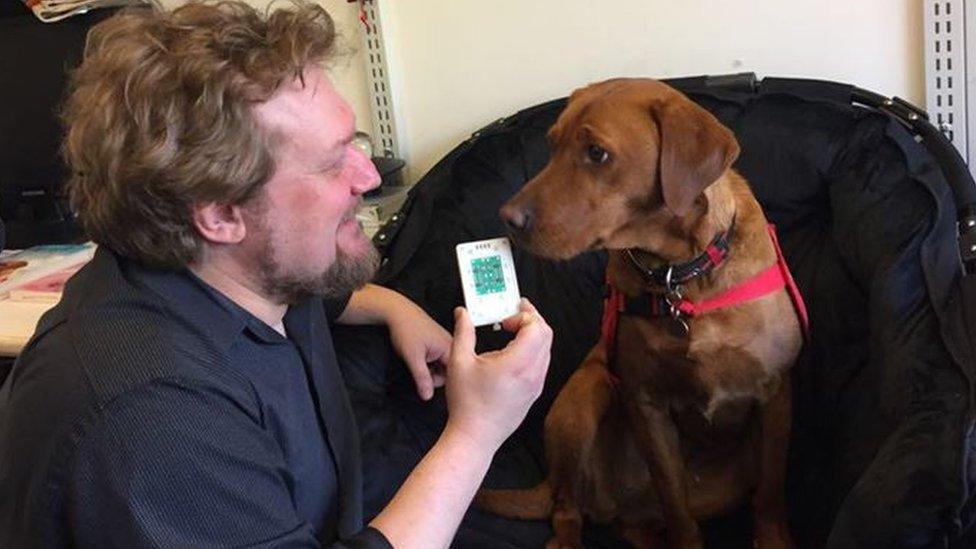
Four-year-old Florin was flown out to the US so that scientists could work with her to create a "robotic nose" to detect the disease
Andreas Mershin from MIT, who co-wrote the study, said: "Imagine a day when smartphones can send an alert for potentially being at risk for highly aggressive prostate cancer, years before a doctor notices a rise in PSA levels.
"Once we have built the machine nose for prostate cancer, it will be completely scalable to other diseases."
Prostate cancer is now the most commonly diagnosed cancer in England, having overtaken breast cancer for the first time.
Dogs from the charity are also being trained to sniff out coronavirus and could be used at airports to screen people arriving from abroad, with results from the trial expected soon.

Find BBC News: East of England on Facebook, external, Instagram, external and Twitter, external. If you have a story suggestion email eastofenglandnews@bbc.co.uk, external
Related topics
- Published20 August 2020
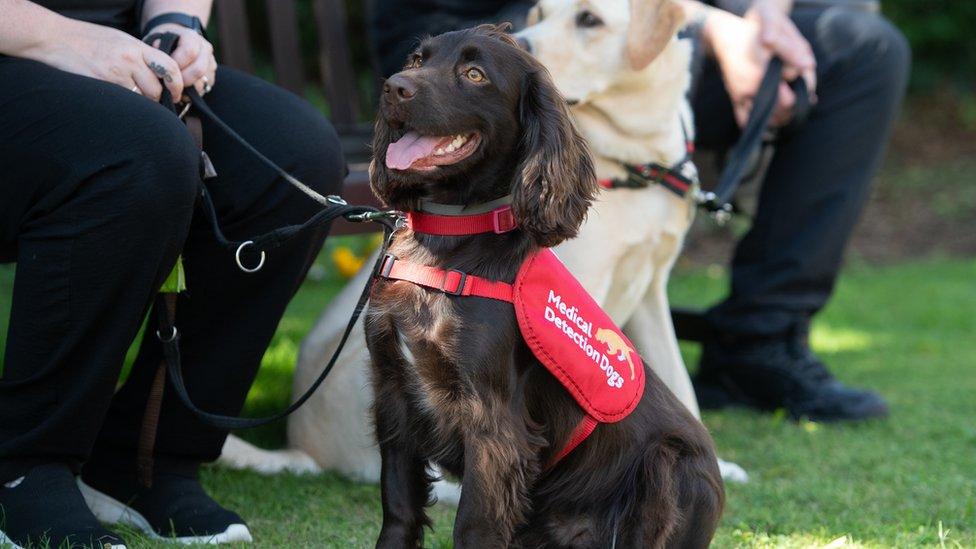
- Published3 July 2020
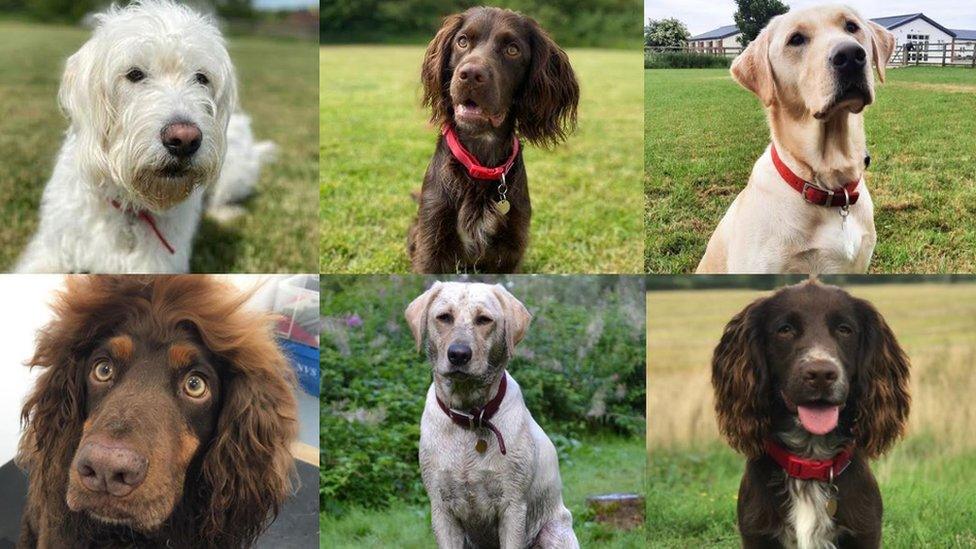
- Published27 March 2020
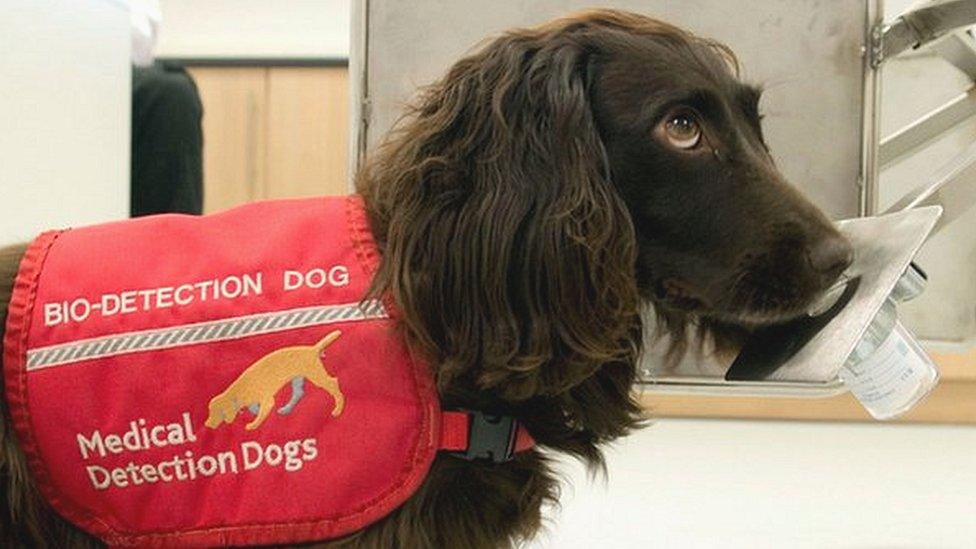
- Published27 January 2020

- Published17 December 2019
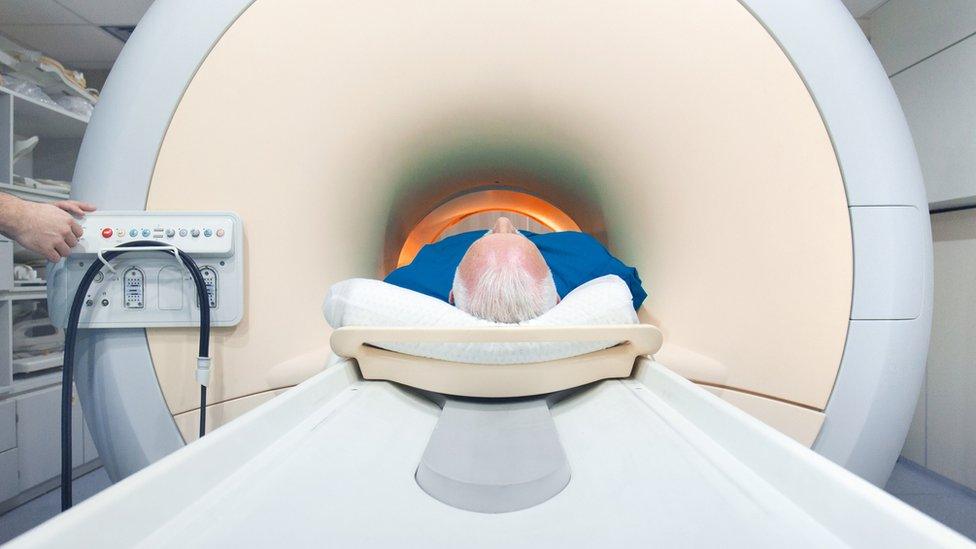
- Published10 June 2019
